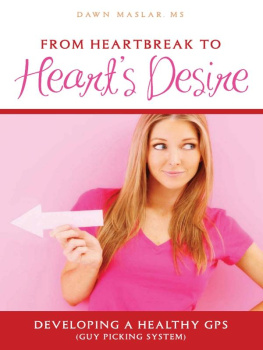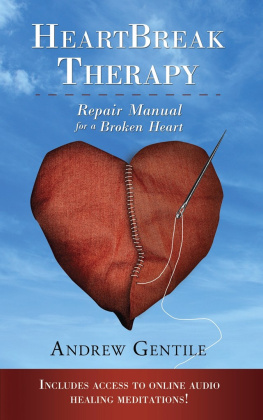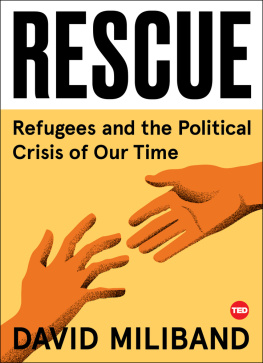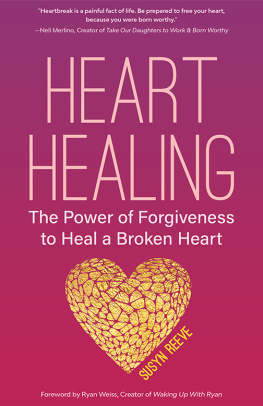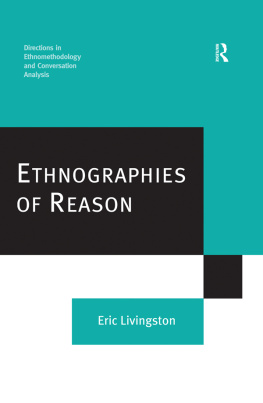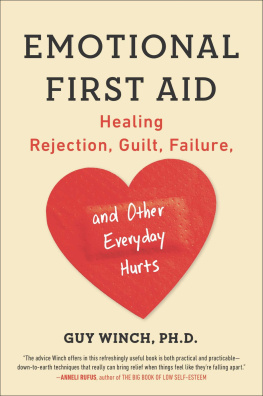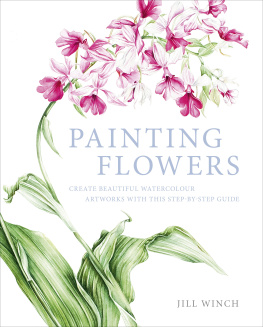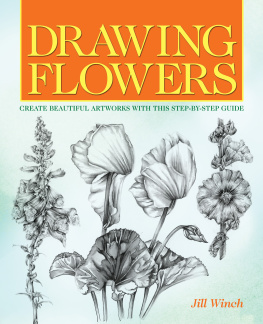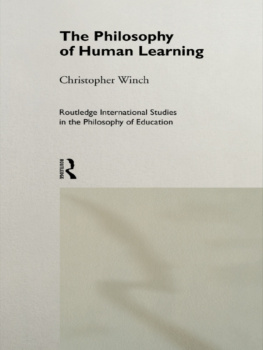Thank you for downloading this Simon & Schuster ebook.
Get a FREE ebook when you join our mailing list. Plus, get updates on new releases, deals, recommended reads, and more from Simon & Schuster. Click below to sign up and see terms and conditions.
CLICK HERE TO SIGN UP
Already a subscriber? Provide your email again so we can register this ebook and send you more of what you like to read. You will continue to receive exclusive offers in your inbox.
CONTENTS
To Louise Shimron
AUTHORS NOTE
In this book I use numerous case studies from my private practice. When doing so I have made efforts to disguise any identifying information. Consequently, the names of my patients as well as those of their significant others (both human and animal) have been changed. I have also tried to back up my assertions with empirical scientific studies published in top-notch scientific journals with blind peer-review acceptance procedures. I provide a select list of these texts in the References section.
INTRODUCTION
The storm of heartbreak strikes like a hurricane. At times, we are alerted to its arrival by an early forecast of ominous signs. Often it catches us by surprise; a conversation that takes a startling turn or an unexpected text as we busily go about our day. Either way, when the storm touches down, it lands hard. The wind batters our sense of security and certainty. The icy rain soaks every nook and cranny of our being, from the part of us that is a capable professional to the part thats a devoted parent or a passionate artist or a weekend partier. We squint at the world through glasses tinted by emotional pain, fearing the dark clouds will never break. Unlike real hurricanes, heartbreak has no eyeit offers no reprieve and it leaves no place to take shelter. We thus remain exposed, drenched, and miserable until it passes.
These feelings and perceptions are familiar to mostvirtually every one of us has or will have our heart broken at some point in our lives, whether by romantic love or by loss. Given how ubiquitous heartbreak is, it is remarkable that we know so little about how to heal it. Even more remarkable, given how personally familiar we are with the emotional devastation it causes, is that our societal attitudes toward heartbreak are so downright dismissive.
We tend to associate having a broken heart with something that happens to the young, the nave, or the inexperiencedteenagers and young adults who have not yet felt the full weight of adult responsibilities on their shoulders. Real adults are supposed to handle such occurrences as they might any other setback or disappointmentwith maturity and stoicism. Heartbreak resides firmly in the category of baseball and spilled milkit is simply not something one cries over, or so we believe.
That is until our own heart gets broken.
For then, we will swiftly be reminded that heartbreak hurts just as much later in life as it did when we were teenagersit evokes just as much paralyzing emotional pain and it impairs our thinking and functioning in all the same ways. We will also have to confront the unfortunate reality that unlike with our teenage experiences we had received in high school, the understanding, support, and compassion are likely to be noticeably absent.
Mirroring the lack of seriousness with which we regard it, the term heartbreak has itself become diluted. We declare ourselves heartbroken when our favorite sports team loses an important game, when the crystal vase we inherited from our grandmother slips out of our hands and shatters on the floor, or when we discover the heroine in our favorite novel fails to choose the supernatural teen suiter we hoped she would. As disappointing and upsetting as such events are, none of us would confuse them with the anguish we feel when our hearts are truly broken.
Real heartbreak is unmistakable, from the intensity of the emotional pain it causes, to the totality with which it takes over our mind and even our body. We think of nothing else. We feel nothing else. We care about nothing else. And often, we feel as if we can do nothing else except sit with the immense pain, grief, and loss.
Broken hearts come in many forms, but in this book, I have chosen to focus on two types of heartbreak that have much in common: romantic heartbreak and the heartbreak that ensues from the loss of a cherished pet. I have done so because these experiences involve a complication that is particularly difficult for the brokenhearted: They are accompanied by severe grief responses yet they are not deemed as important by society as, lets say, a formal divorce or the loss of a first-degree relative. As a result, we are often deprived of the recognition, support, and compassion afforded those whose heartbreak is considered significant.
Indeed, when a parent, child, or sibling dies, we are likely to get an outpouring of support and compassion from institutions as well as from individuals. Employers will offer us condolences, understanding, and bereavement leave when our parent dies. But they will do no such thing when our beloved dog dies, even though for some people the latter is just as profound if not more. Similarly, our boss is likely to be much more understanding of our lackluster performance once we explain we are going through a divorce than if we confess to mourning the loss of a short-term relationship, however intense and important.
Further complicating matters, the lack of empathy we receive from others is often reflected in our own attitudes. Too many of us ache with emotional pain only to then criticize ourselves for hurting. We falsely believe we should somehow stay calm and carry on that we should be able to function normally, when psychologically speaking something very abnormal is going on. Now, new scientific studies are confirming what many of us already suspected: Heartbreak impacts our brain and our behavior in dramatic and unexpected ways, and that it does so regardless of our age.
One of the most unfortunate realities of heartbreak is that our natural responses often do us more harm than good. Many of the behaviors and habits we typically adopt to cope with heartache are likely to deepen our emotional pain, delay our recovery, and even damage our long-term mental health. Sadly, most of us have no idea what these behaviors are, how we might avoid them, or how we might break free of them once they are already ingrained. This same body of research has also illuminated effective techniques we could use to accelerate our healing. Most of us do not know what those are either.
As a psychologist who has had a private practice for over two decades, I have had a front-row seat, or rather, armchair to hundreds of heartbroken people and their struggle to heal and recover. Since my office is in the melting pot of New York City, my patients come from all over the world, and have a range of ages, gender identities, and ethnic and cultural backgrounds. And yet I learned early on that when it comes to heartbreak, these kinds of demographic factors matter not a whit. Cultural differences might influence how we react to heartbreak outwardly but what we feel inside, the pain and anguish we experience internally, is very much the same.
As most psychologists, I entered the field because I was motivated to ease the emotional and mental suffering of others. Looking back at the most dramatic and painful moments Ive witnessed in my career, heartbreak was responsible for a majority of them. Yet, graduate school taught me very little, if anything, about how to fix a broken heart. So I turned to academic journals for enlightenment and advice.
Researchers have been studying heartbreak for years and their findings, albeit often written in dry and academic terms, have offered many insights and techniques that have helped my heartbroken patients recover more quickly. I present the best of them here, along with the stories of the patients who needed them, their unrecognized struggles, and the journey of healing on which we embarked together.
Next page

